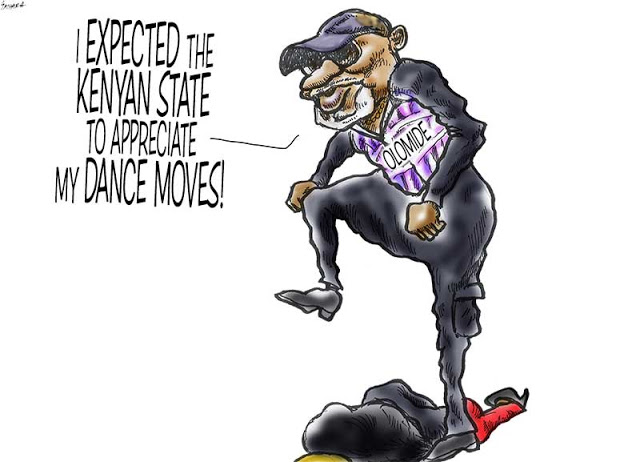The recent deportation of famed 60-year-old Congolese rumba star, Koffi Olomide, after he was filmed apparently kicking a female member of his band at the Jomo Kenyatta International Airport has once again highlighted both the power and limitations of social media in Kenya.
A video of the incident went viral on the internet precipitating a furious reaction from the ever vocal Kenyans On Twitter (KOT) demanding action be taken against the singer. His arrest and deportation the next day was hailed as an example of how the collective voices of citizens can be harnesses through the internet to prompt governing authorities to move.
This is, of course, not unique to Kenya. Across the globe, activists have become adept at utilizing the internet and social media to power movements for political and social change. The so-called “Twitter revolutions” that swept through countries as diverse as Moldova, Ukraine, Egypt, Tunisia and Iran demonstrated that the ability of ordinary citizens to communicate and share ideas can have real consequences. In fact, authoritarian governments have sought to restrict the availability of such technologies fearing that a better-coordinated populace would constrain their ability to act without oversight. A good example was the shutting down of social media by the Uganda government during the elections in March.
However, it is instructive to note that most social media revolutionaries have ultimately failed in delivering sustained political change. Across the Middle East, the dreams fostered by the Arab Spring have given way to the nightmare of civil war and state disintegration. In Turkey and in Egypt, authoritarian leaders were able to reassert their power.
The fact is much social media activism tends to focus on the visible and easily apprehended symbols of oppression rather than its hidden and deeply ingrained roots. This is partly because of the nature of the internet and social media. There is only so much insight you can stuff in to 140 characters. And the glut of information and causes demanding our attention mean that most can afford little more than a cursory acquaintance with the issues. Stripped of nuance and context, much social media activism attempts to reduce complex issues to pithy hashtags and to reproduce the world in superficial dualities of black and white, good and evil. It is thus not surprising that these utopian visions would disintegrated when exposed to the full spectrum of reality. As Ivan Kratsev noted in the New York Times last year, “you can tweet a revolution but you cannot tweet a government”.
The true value of social media lies neither in its undoubted ability to mobilize large numbers of people around a particular issue nor in its undeniable power to instrumentalize their voices to achieve specific short term goals. The real power is in creating a public sphere where conversations can happen. Just as the printing press helped democratize Europe by providing space for discussion and agreement among politically engaged citizens, so social media and the internet can foster change in the long term by building online communities that articulate, echo, challenge, shape and transform political ideas. As Clay Shirky, Professor of New Media at New York University, wrote in an essay for Foreign Affairs magazine, “access to information is far less important, politically, than access to conversation”.
The impact of social media in the case of Koffi Olomide should thus not be judged solely by his deportation, the cancellation of his concerts in Kenya and Zambia and his jailing in Congo, but by how conversations and attitudes towards gender-based violence, and in particular violence against women, are shaped in the coming days, weeks and months.
In 2013, online outrage at the rape and attempted murder of a teenage girl in Busia by six men whom police “punished” by ordering them to cut grass, led to the hunt, re-arrest, trial and subsequent jailing of three of the perpetrators. Yet, beyond this “quick win” the system that allowed the atrocity to happen remains unreformed and none of the officers involved appear to have suffered any consequences. More to the point, KOT discussions of this have vanished.
Such must not be the legacy of social media.



